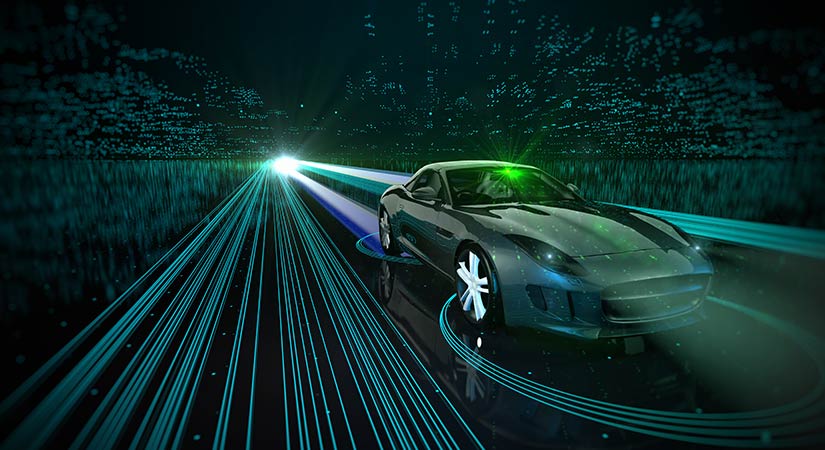Grid-Transportation Integrated Energy Systems
As electric vehicle (EV) adoption rapidly increases, our power systems must evolve to incorporate vehicle charging and leverage these assets for improved grid and transportation performance.

NREL takes a wholistic approach to grid-transportation integrated energy systems to evaluate the impacts and opportunities of each type of charging, distributed energy resource, and grid asset. Our projects examine the effects of EV charging loads on the grid and explore how we can minimize the costs of grid integration and leverage EV charging to improve grid resilience and reliability.
Capabilities
- EV charging evaluation platform with power system interface and high-voltage capabilities
- Charging load estimation
- High-fidelity power distribution system and transmission system modeling
- High-fidelity transportation system modeling for charging systems ranging from Level 1 to DC fast charging and charging stations greater than 1 MW load
- Cosimulation of grid and transportation systems to evaluate system interdependence
- Charging control and management development, testing, and analysis
- Integration strategy development supported by a suite of EV-grid integration tools
Projects
RECHARGE is a project to determine expected regional grid loadings from vehicle charging, the effects those loads will have on power distribution systems, and how control strategies might mitigate those effects. This project examines EV adoption and loading at scale across regions.
GEMINI-XFC is a project to determine the effects of EV adoption rates on distribution systems, with a special focus on extreme fast charging. This project examines not only how uncontrolled charging would affect the grid but also how control measures could be used to improve grid conditions such as line loading, transformer loading, and voltage. High-resolution distribution system models are cosimulated with high-resolution transportation simulation models for the greater San Francisco Bay Area to evaluate grid response and control methods with high fidelity on a realistic scale.
1+MW is a project to evaluate the integration of medium- and heavy-duty EVs that require megawatt-level charging facilities. These concentrated high-power loads will have a different effect on power systems than light-duty EV charging. This project determines best practices for high-power EV charging grid interconnection, location selection, and charging impact mitigation solutions. Four representative distribution system models have been used in this research effort. Charging load profiles of stations with various charging capacity configurations are placed on different locations of distribution systems for grid impact analysis.
Publications
Grid Voltage Control Analysis for Heavy-Duty Electric Vehicle Charging Stations, IEEE Power and Energy Society Innovative Smart Grid Technologies Conference (2021)
Location Selection of Fast Charging Station for Heavy-Duty EVs Using GIS and Grid Analysis, IEEE Power and Energy Society Innovative Smart Grid Technologies Conference (2021)
Grid Impact Analysis of Heavy-Duty Electric Vehicle Charging Stations, IEEE Power and Energy Society Innovative Smart Grid Technologies Conference (2020)
Contact
Share
Last Updated March 14, 2025
